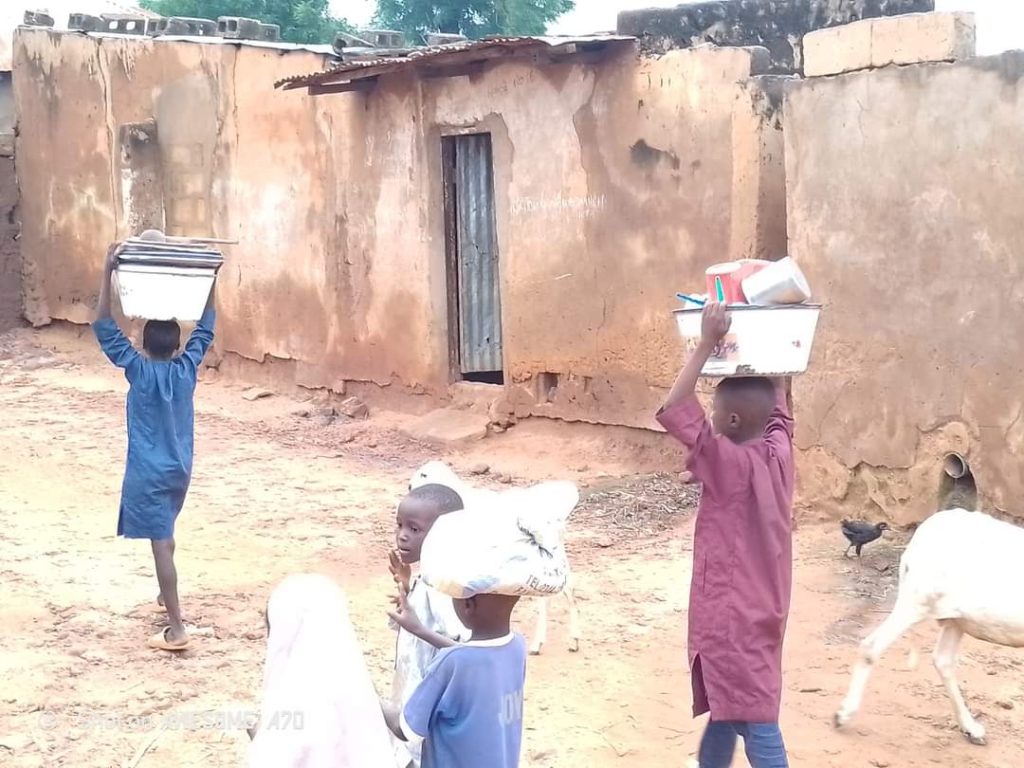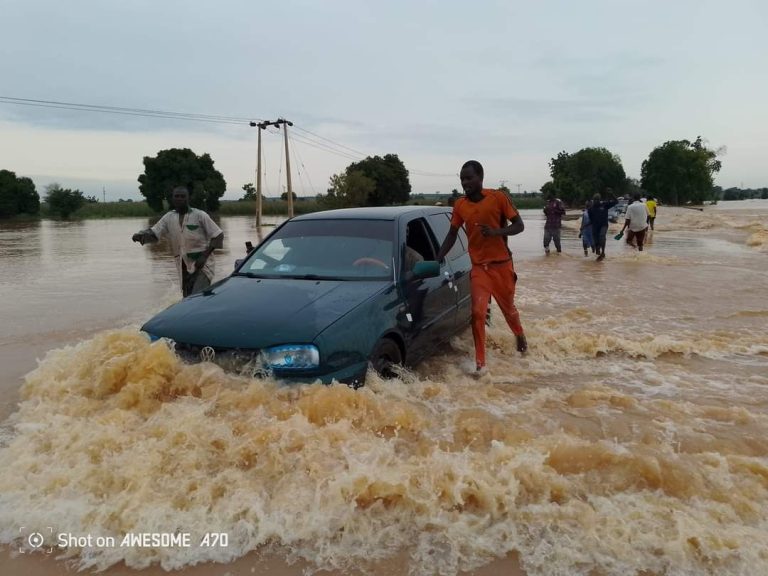The northern regions of Nigeria, particularly the northwest and northeast, are grappling with severe flooding, with Sokoto State among the states with the hardest hit. The floods have submerged farmlands and destroyed properties worth millions of naira, affecting local governments such as Yabo, Wammako, Kware, Gada, Goronyo, and others.
By Gift Ovuede
A committee set up by the Sokoto State governor to assess the damage revealed that more than 20 out of the 23 local government areas in the state have been impacted by the flood. The devastation has left countless residents displaced and worried about the future of their livelihoods.
In an interview with ASHENEWS, Alhaji Bashar Garba, a farmer from Sayinna town in Yabo Local Government, recounted the destruction caused by the floods. “The floods forced us to move our remaining properties, livestock, and families to neighbouring villages for safety as the water overwhelmed us and swallowed our houses,” he said.
Garba lamented the loss of his farmlands, which would have produced over 500 bags of rice, millet, and corn this season. “My farm was completely submerged, and I lost produce worth millions of naira. “I hope and pray that this disastrous flood never happens again because if it does we may face a heavy food scarcity resulting in food insecurity in our town and its surrounding towns.
“The floods caused us to move the remains of our properties, livestock and families to the neighbouring villages for safety as the water from the flood overpowered us and swallowed our houses.”
The emotional toll of the flood is felt deeply by many farmers. Hassan Alhaji Yahaya from Asare village in Wammako Local Government could not hold back tears as he spoke about the losses suffered by his community. “I have never seen this kind of flooding before, because this one destroyed not just our farm produce but our houses and properties were lost to the flood.”

“This year’s farming for us is a complete waste because we can’t boast of any tangible harvest compared to the farming investment we made. In the whole of Sokoto, I can boldly say that Wammako houses more farmers than can produce food for the people in the state.
He called on the government and non-governmental organizations to intervene to prevent future disasters. “I am calling on the government and non-governmental organisations to please come to our aid. We need help so this doesn’t happen again,” Yahaya pleaded.
The root causes of flood
Environmental experts attribute the escalating flooding in Sokoto and other northern states to climate change, deforestation, poor drainage systems, and indiscriminate waste disposal. Dr. Yusuf Isah Sokoto, an environmental scientist, explained that these factors have made northern Nigeria increasingly vulnerable to extreme weather events.
“Climate change is driving more frequent and intense flooding. Deforestation and the lack of proper drainage systems exacerbate the situation. The indiscriminate dumping of waste only worsens the problem,” Yusuf said.
A national crisis
The flooding in Sokoto is part of a larger national crisis. According to the National Emergency Management Agency (NEMA), over one million people have been affected by flooding across Nigeria between April and September 2024. The agency reported that 625,239 people have been displaced and 259 lives lost due to the disaster.
During a recent National Emergency Coordination Forum in Abuja, NEMA raised the alarm about the scale of the crisis and the urgent need for government action to mitigate the effects of flooding and support those affected.
As Sokoto and other northern states continue to reel from the damage, residents like Garba and Yahaya fear for their future, calling for immediate intervention to prevent further devastation and ensure that communities can recover and rebuild.


